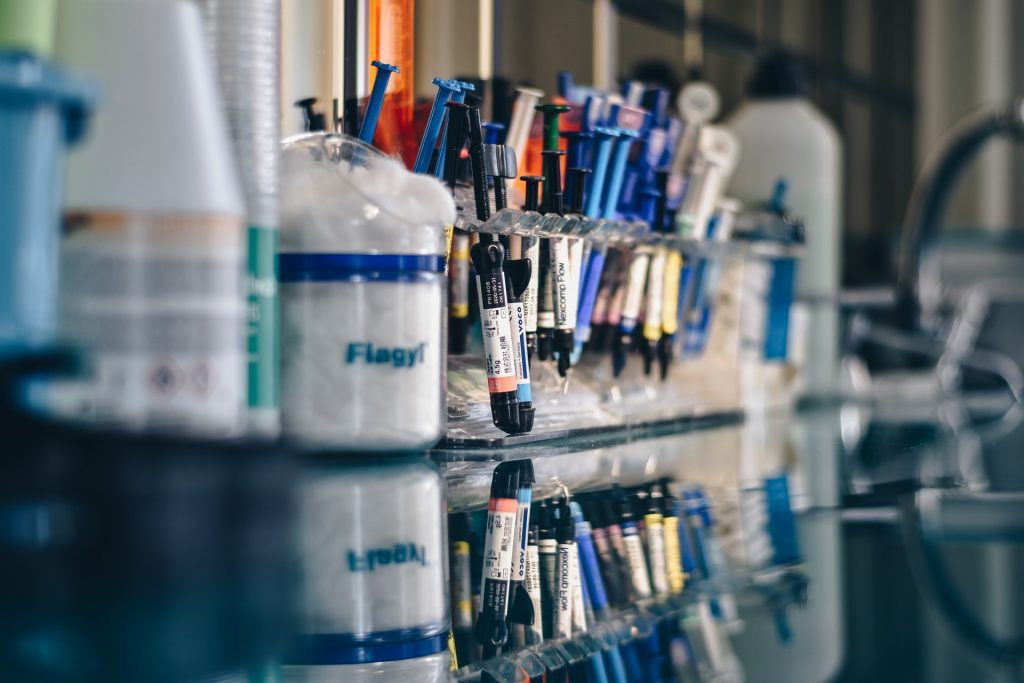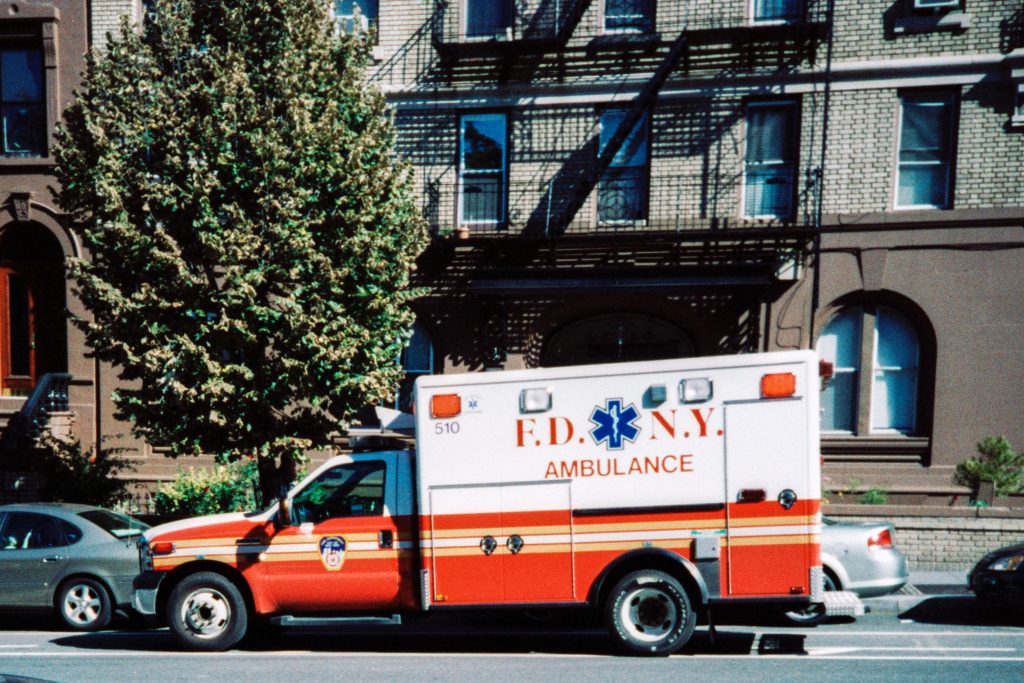When you think of different jobs that are part of the healthcare industry, it can seem overwhelming and tiring.
In essence, phlebotomy is different from many other medical careers in that it requires training and experience.
The advantages outweigh the disadvantages.
You can practically never hear the words “phlebotomy” and “career” together.
There is a misconception that you cannot be a phlebotomist forever, but this is not true.
Not only is it the right choice for a job but it is also the ultimate option for a long, successful career, regardless of your age or experience.
It is a fact that phlebotomy is not for everyone.
Still, it is also an excellent opportunity for anyone who can handle blood/needles, loves working with people, and is also a team player.
Our team of renowned professionals conducted invaluable research.
We put the results in a guide with the help of which you will understand the benefits of choosing a phlebotomy career.
Once you know that phlebotomy is the right career choice, you can immediately find a training program near you.
If you have ever been interested in medicine, this is a great opportunity.
The guide covers what is expected of phlebotomists and what characteristics you should have as a person.
Phlebotomy is a great career choice, but it may require a real person to turn work into a lifelong career.
Page Navigation
- How Much Does It Take to Become a Phlebotomist?
- Is There a Shortage of Phlebotomists?
- Possible Workplaces for a Phlebotomist
- How Much Does a Phlebotomist Make?
- Work Schedule
- Professional Growth Opportunities
- Are Phlebotomists Well-Respected?
- Overcoming Fear
- Disadvantages of Being a Phlebotomist
- The Bottom Line
How Much Does It Take to Become a Phlebotomist?
Depending on the school or training facility you attend, the time it takes you to become a phlebotomist will vary.
You can even participate in phlebotomy classes online.
This is a great way to customize busy schedules if you already have other work to do.
Although not all countries require certification, you may be trained to become an authorized phlebotomist.
It is an excellent idea to do this even if your state does not require it.
This is a great way for starters to get the word out that phlebotomy is a career choice.
In most cases, it can be around 4-8 months.
Furthermore, the authorized phlebotomists are gaining more experience and will probably be employed.
When you become certified, you may receive a higher salary than an unauthorized phlebotomist.
The training program is mainly divided into two parts, i.e., the more boring one in which you will have to sit in the classroom, where you will primarily study the following subjects:
- How to perform venipunctures
- Lab safety rules
- Medical terminology
- Human anatomy and systems
Given that there is no substitute for practical training.
The second half will mainly focus on real venipuncture.
You’ll have to draw blood a specified number of times from a large number of people successfully, and it is usually done to other classmates or volunteers.
This hands-on experience guarantees that you will be ready to be employed anywhere.
Although the training does not last long, it is useful and prepares you for almost any situation that a phlebotomist may face.
Is There a Shortage of Phlebotomists?
According to many studies, the job growth in phlebotomy from 2016-2020 is 25%.
Furthermore, it is expected to grow even more.
Namely, by 2026 it is expected to grow by approximately 27%.
Due to this need for qualified phlebotomists, you will probably be hired quickly after completing the training.
This is excellent news for people who need work right away.
Job security is another reason why phlebotomy is a fantastic career choice.
It is a fact that many complex conditions could be diagnosed by blood sampling, much more than in the past.
Because of this, phlebotomists are in great demand.
The population as a whole is also aging.
This makes it more likely that they will need more blood tests as they continue to age.
The healthcare industry is safe.
No matter what, there will always be a need for health care.
Even more so, with the advancement of technology, healthcare professionals can now do more than ever before.
This spreads at the speed of light.
Possible Workplaces for a Phlebotomist
With no signs of slowing down, so many growth opportunities, and a significant need for both positions, you should be able to find work fairly quickly.
Now that you know that phlebotomists are in high demand, you need to know where you can work.
That is another benefit of this career.
The first thing that usually comes to mind is working in a hospital.
Occupied hospitals across the country need several staff phlebotomists at the same time.
Besides, the fact is that often, the phlebotomist is the first person the patient sees to take blood and examine the blood.
Phlebotomists in hospitals work as part of a team.
Therefore, before deciding your workplace consider your options.
While the job prospects for phlebotomy itself are good, so are your chances of finding a job.
A quick search on the internet can make it easier to find phlebotomists near you.
Because you may not find work in a hospital or you do not want to work in busy places, there are always other opportunities, including:
- Private practices
- Emergency clinics
- Nursing homes
- Blood banks
- American Red Cross
And remember that no matter what happens, you will always have many opportunities to count on.
It would be best if you were prepared to work with people. In fact, phlebotomy is hardly ever a tedious career.
And probably the most exciting part is that you will work with plenty of different people the whole day.
Of course, depending on where you choose to work, you could see dozens of patients a day.
This will range from young children to older ones.
Plus, you will feel more comfortable if you interact with your patients.
It will make your work much more relaxed.
If you think you want to work better with a particular group, you can reduce your employment opportunities.
If you’re going to work with older ones, you can find work in a nursing home.
How Much Does a Phlebotomist Make?
There is a misconception that there is no room for career advancement in phlebotomy or that you will never make more money.
That is incorrect.
There are various ways to move your career forward as a phlebotomist.
You may need more training to focus on the specialty of phlebotomy.
For example, therapeutic phlebotomists can do much more than phlebotomy technicians.
More education is required, but the salary may be worth it.
When it comes to training, you can save money from the start.
The phlebotomist training does not take a long time.
Furthermore, it is also not expensive.
Most training programs will cost no more than $4,000.
Some even cost only several hundred dollars.
So you will not have to start your career as a phlebotomist under a mountain of debt.
Because there is a shortage of phlebotomists, many facilities are willing to pay more for the more qualified ones and even train them with their program if trainees are eager to work there afterward.
This could also affect the salary.
On average, a phlebotomist is earning approximately $33,000 per year.
But there is always room for advancement.
For example, if you manage to get a promotion to a supervisor’s position, you can earn over $40,000 annually.
Furthermore, if you choose to become certified, you can make even more.
Work Schedule
No matter where you work, you will always have a flexible schedule.
For example, we can say that if you work in a busy hospital, you can work overnight instead of the usual work.
And for those of you who want something more routine, you can try a private practice that is open only during standard business hours.
Many phlebotomists also choose to work part-time to “trade” shifts with co-workers if they need extra free time.
These institutions use phlebotomists once in a while, as required.
But they do not need every employee every day, or they cannot afford it.
Blood drives, busy hospitals, nursing homes, etc., are sometimes used by mobile phlebotomists.
That’s why we are going to mention the traveling phlebotomists.
This is more a freelance job because as a mobile phlebotomist, you will get hired by different groups or medical facilities.
And it is essential to note that you’ll need to have already built your client base.
With that done, you can work as much or as little as you want.
In conclusion, depending on where you work, you may be in a busy environment.
You may need to be on your feet for a long time, and you may need to move fast.
Phlebotomists may be the first person a patient sees in a hospital or clinic.
Knowing what you are doing and how important your work is can bring you an adrenaline rush every day.
You also work with medical laboratories.
Hospitals usually have vision labs, so you need to be fast on your feet to get blood samples at these labs.
You may think that working as a phlebotomist is routine.
The work you do may feel routine, but every patient is different, and every day will also be different.
If you are someone who values routine and wants to work at a slow pace, phlebotomy may not be the right career for you.
While it is true that you do the same thing every day, two days will probably not be the same.
We have already touched on the fact that you will work with different people.
The patients you see every day will make your day more interesting, but that is only part of what makes the job exciting.
Professional Growth Opportunities
Given that the phlebotomy job has been paid much more than the other entry-jobs, we can conclude that the job as a phlebotomist is an excellent career choice with plenty of growth opportunities.
Certain types of phlebotomists need additional training.
A great example of this is the therapeutic phlebotomist.
But the title comes with a lot of sacrifices.
But these sacrifices could be worth it because you can get a salary increase.
Furthermore, there are higher positions for phlebotomists.
With experience, you can become a supervisor.
Again, this includes higher wages.
The supervisor is in charge of the phlebotomy team and makes sure everything goes well.
In fact, the more certifications you get, the higher you can take your phlebotomy career.
But there are also opportunities in private practice.
Phlebotomists can work in a variety of locations, even volunteering.
Places such as blood banks, the American Red Cross, nursing homes, and even prisons regularly work with phlebotomists when people need blood.
There are also travel and volunteer opportunities, but what can we mention here?
The fact that you do not have to go to medical school for years does not mean that you will not be part of the medical community.
Phlebotomists are needed worldwide for medical care.
There are opportunities for volunteers for phlebotomists.
This is not limited to US capabilities.
If you love to travel and want to help people worldwide, you can have that opportunity with phlebotomy.
Many different organizations need phlebotomists around the world.
Many of these locations do not have access to medical care.
If you can volunteer and help people in need of medical care, phlebotomy is a great way to do that.
Are Phlebotomists Well-Respected?
Just because phlebotomy is an early career does not mean it does not matter.
This would mean that phlebotomists are doing work that is essential to the medical field.
Blood tests are so standard because they help save lives and diagnose medical conditions.
Thanks to advances in technology, blood tests can determine certain conditions more than ever.
A doctor can order a blood sample, but it is up to the phlebotomist to draw and mark it correctly.
Because blood is one of the essential resources in the health system, phlebotomists are well-respected medical team members.
Anyways, here we can list the diseases that blood tests could detect:
- Allergies
- Anemia
- STDs
- Infections
- Leukemia
- Prostate cancer
Overcoming Fear
Many people experience lousy blood drawing.
This includes sore sticks, or you have to get stuck many times.
If you intend to be great at what you do, you’ll have to get rid of those fears and memories of bad experiences.
The medical field does not only need more phlebotomists.
Great phlebotomists are in high demand.
If the patient knows there is nothing to worry about while taking blood, they will come sooner.
The condition can then be diagnosed and treated earlier.
Being kind to your patients and making sure they feel comfortable is also a different way to save lives as a phlebotomist.
It is essential to remember that a good phlebotomist does much more than draw blood and label it.
For that reason, it is important to be excited while working.
Phlebotomists can mean much more to a patient than you might expect.

Disadvantages of Being a Phlebotomist
Now that you know that phlebotomy, in most cases, gives you benefits and has plenty of good sides, it is time to mention some disadvantages.
Some of the shortcomings of a phlebotomy career may not affect you.
But you need to know them before committing to this career.
First, we will mention the high risks.
Although it does not have to be a high-risk position, some things can happen to a phlebotomist.
Air pollutants may be around.
Or, you may accidentally get stuck with a needle.
If that needle is contaminated, you may be at risk for disease.
Working with blood can present many risk factors.
Handling any tool with excellent care is essential.
The patient’s injury could be even worse.
You can lose your job, and the medical facility where you work can run into many problems.
Maybe as essential as the risks are is the stressful workplace.
What do we think when saying stressful workplace/environment?
Well, as you probably know, there are many different places where a phlebotomist can work.
Unfortunately, the high-energy, exciting atmosphere in the hospital can also be a disadvantage for some.
What could lead to stressful work is the excitement wearing off.
Most things in the hospital move quickly, and you may not have time for leisure or rest.
Feeling stressed at work can make you rush to work.
We think that we shouldn’t even mention the extended hours.
Namely, phlebotomy can leave you on your feet for hours at a time.
You may need to walk many steps a day if you work in a busy hospital or if you need to walk back and forth to the lab.
If you have some foot or leg problems, phlebotomy may not be the right choice for you.
You will see situations that are not beautiful to look at.
Phlebotomists working in emergency clinics or hospitals can be exposed to many injuries and conditions.
Trauma and severe injury are common in places like these.
It would be best if you were prepared to see everything including gunshot wounds and accident victims as well.
Remember that it can be challenging to see the insides of a human being.
The variety of patients could be another disadvantage.
Working with different people can be a benefit of essential importance for phlebotomists.
But it is essential to understand that not every patient will be comfortable working.
Whether they are just nervous or look cruel, it can be challenging to deal with specific people.
Staying balanced is essential.
But if you do not want to wonder what type of people you work with every day, phlebotomy may not be the ideal choice for you.
The Bottom Line
From all of that we’ve said, we can conclude the following:
- Depending on the school or training facility you attend, the time it takes you to become a phlebotomist will vary.
- With no signs of slowing down, so many growth opportunities, and a significant need for both positions, you should be able to find work fairly quickly.
- There is a misconception that there is no room for career advancement in phlebotomy or that you will never make more money, which is totally incorrect.
- If you intend to be great at what you do, you’ll have to get rid of those fears and memories of bad experiences.
- There are also travel and volunteer opportunities.
- Phlebotomists can mean much more to a patient than you might expect.
- There are lots of advantages such as room for advancement, good, equipped labs, etc.
- But an integral part of all this is the disadvantages as well.
Remember that phlebotomists can be exposed to many injuries and conditions while working in emergency clinics or hospitals.
Trauma and severe injury are common in places like these.
It would be best if you are prepared to see everything from gunshot wounds to accident victims.
This page is also available in Spanish.












